“Thank you, Steve. I’ll see you on Tuesday for our next session”. I finished the Zoom call with my public speaking coaching client.
As I got up to make myself some tea, Steve’s words echoed in my head.
“Nausheen, I’m gaining confidence in how I express myself in presentations. However, there are times when I go blank! And then I don’t know what to do about it. Just the possibility of it petrifies me each time I have to speak in public!”
Having coached over 245 clients, including Fortune 500 execs and CEOs of 8-figure companies, I’ve observed a common ‘fear factor’: their fear of that moment during a presentation, podcast, or pitch when their mind goes blank.

Image by KamranAydinov on Freepik
If you’ve felt the same way, know that this is something that can be hard to overcome. In this article, I’m going to share with you strategies to manage your moments of blankness – and to make sure your mind doesn’t go blank the next time you speak.
Make yourself a cup of tea (or your favorite beverage) and let’s get started.
Table of Contents
Why does your mind go blank?
It’s important to understand this.
Our brains have been hardwired to protect us since the hunter-gatherer days. Whenever it perceives a threat, one of 3 possible responses kicks in:
The ‘Fight’ response
When you experience the ‘fight’ response, your body is preparing to combat a threat.
Your body releases adrenaline, which causes a number of physiological changes, including increased heart rate and blood pressure, muscle tension, increased sweating, and heightened alertness. (This explains why your heart beats faster when you’re nervous – and about to step on a stage!)
The ‘Flight’ response
If the ‘flight’ response kicks in, your body is preparing to run away from the perceived threat.

(Source)
The ‘Freeze’ response.
But when you experience the ‘freeze’ response, your body is playing dead in an attempt to avoid a threat – like a deer caught in the headlights.
This is characterized by a temporary shutdown of the body’s non-essential functions, such as decreased heart rate and breathing, and decreased muscle tension.
This is why Steve goes blank during presentations. This is also the reason behind you experiencing a moment of blankness when you speak. You’re paralyzed with fear. Fear of public speaking. Maybe even a case of stage fright.
By the end of this article, you will know exactly what you can do to make sure your “freeze” response doesn’t overpower your ability to speak in public.
My 3-step process to ensure you’ll never go blank when speaking in public
Step 1: Understand what makes your mind go blank
You know that your brain’s “freeze” response to the perception of a threat makes you go blank.
That is the physiological explanation.
However, there are few cognitive reasons at play as well. The good news is that once you understand these, it becomes much easier to manage them.

(Source)
You may face your moment of blankness due to one or more of these mental inhibitions:
- Imposter syndrome: You feel like a fraud and that your audience will find that out at any moment.
- Physical discomfort: You feel physical discomfort in the moment (blinding lights, uneasy feeling, queasy stomach) and can’t think straight.
- You overthink things and aren’t able to articulate your thoughts clearly.
- You want to be perfect and not say something that’s not appropriate, wise or apt – which paralyzes you in the moment.
- You don’t feel in control and that sense of powerlessness isn’t letting you say anything.
- Fear of judgment: This crippling fear is not stopping you from speaking at all.
- You believe you are saying something for posterity. You think you may not be able to go back on your words – they’ll forever be “out there”.
If any of these sound familiar – don’t worry. I’ll share with you strategies to target all of them in step 2.
Step 2: Decide on a strategy to use
Here you’ll learn exactly how to counter the cognitive reasons why you’re blanking out:
1. If you feel like an imposter:
There’s a feeling you get all of a sudden: “Your knowledge is quite common and everybody already knows it”. You think you’re a fraud and everyone will find out.

(Source)
You feel this way because as you are growing in your knowledge and expertise, you are always a step behind in your awareness of how much of an expert others perceive you to be.
Become aware of how you may not be giving yourself enough credit for your expertise. Remind yourself that when you are asked to pitch, give a presentation, or appear in an interview, you’ve been given this ‘stage’ in acknowledgement of this expertise.
Secondly, know that the audience is there to benefit from your experience, not to judge you. If you do well, they’ll have used their time wisely – so they’re rooting for you to do well.
Being aware of the imposter syndrome when it strikes you and knowing the reason behind it will help you get over it.
2. If you’re experiencing physical discomfort
Physical discomfort can irritate you, to say the least. You don’t want distractions to break your flow state.

(Source)
Isolate the reason for the irritation:
- Is it what you’re wearing?
- Is it dehydration?
- Are you wearing your glasses?
- Is it because of noise in the background?
- Are the event lights blinding you?
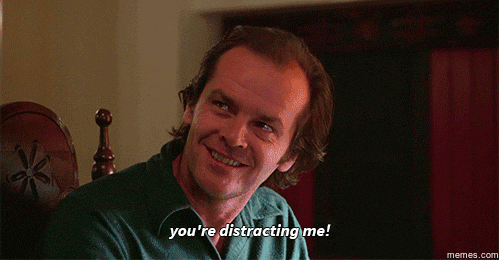
(Source)
For online presentations, you can use this strategy to stay distraction-free:
- Aim to present from a room that has decent insulation from external noise.
- Close the windows and doors to keep distractions away.
- Practice during the same time of the day as your presentation. You may discover a few cyclical distractions such as trains passing by or similar traffic situations at specific times of the day.
- If a participant is noisy during the presentation, please feel free to ask them to mute themselves.
- Keep water or other beverages near you – and keep sipping them!
When addressing an in-person audience, consider these:
- Poor posture can lead to discomfort. Maintain a good posture by planting both feet firmly, keeping your shoulders back and relaxed, and engaging your core muscles.
- Avoid ill-fitting or uncomfortable clothes or footwear. Wear something that provides adequate comfort for standing and moving around during your presentation. Break in new shoes before the event. Aim to dress in layers so that you can add or remove a layer if needed.
- Excessive sweating can make you uncomfortable. Minimize sweating by avoiding caffeine and alcohol before your presentation, and staying hydrated.
- If the event lights are blinding you, can you ask someone to turn them down?
3. If you’re overthinking
It is important to become aware of the moments where you’re overthinking.
Chances are, you have false-starts while talking. As you start expressing a thought, you suddenly abandon it and then start on another thought. This is a sign that you’re overthinking.

(Source)
The strategy is simple: commit to a thought and see it all the way through.
One of my clients, Wes, was facing the challenge of his mind going blank during presentations. He was painfully self-conscious of how he was being perceived by the audience. Because of this, he would overthink to the extent of feeling paralyzed and going blank.
We got him to practice improvizational exercises in a safe environment. Putting him under the spotlight, asking him to commit to a thought, and focusing on expressing it completely before moving on to the next thought.
With this approach Wes was able to gain confidence in his ability to express his ideas – and stopped overthinking to avoid getting paralyzed by indecision.
4. If your quest for perfection is making you blank out
Most of us have a desire to do a ‘perfect job’. Write a perfect book, have a perfect conversation, make a perfect presentation, or express a thought perfectly.

(Source)
If your quest for perfection is paralyzing you from taking action – then you need to address it urgently.
Reframe your need for perfection: you don’t need the result to be perfect, you just need to take action to get to a result. The act of taking action is in itself an achievement – don’t let the need for perfection stop you from getting there.
5. If you don’t feel in control
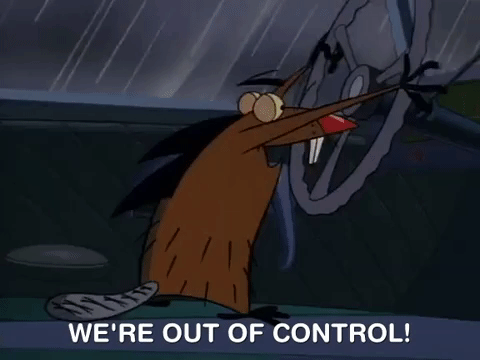
(Source)
Become aware of your own agency in every single situation.
Realize that while external events might be beyond your control, it’s up to you how you respond to them.
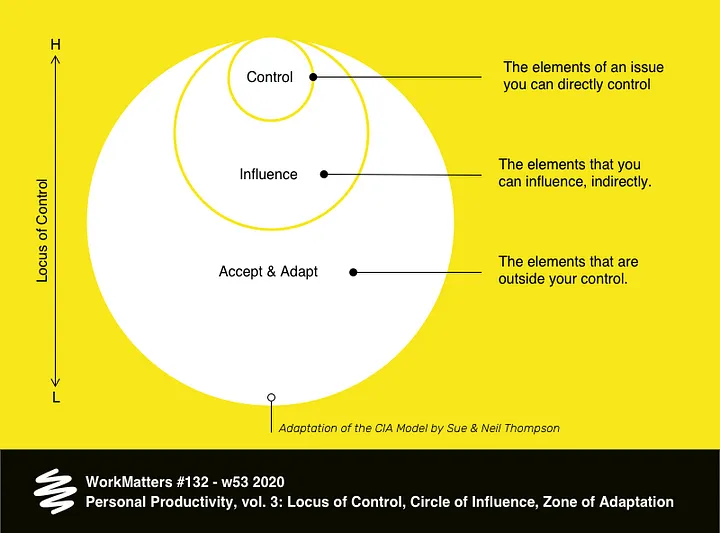
You will always face unexpected issues such as tech going wrong, operating glitches, issues with your mic, and even your mind going blank. And for each instance you have the option to panic, or, the ability to pause, think, respond, and then manage the situation.
6. If you have a fear of judgment
There are 3 reasons why you might be feeling this:
a. Anxiety about making mistakes
Chances are, you haven’t found anyone that has never made a mistake. Additionally, we also know that the audience is rooting for us to succeed. Shift your focus from “I’m anxious about making mistakes” to “I’m not going to let mistakes faze me”.
b. Concern with being criticized
Have you heard about the ‘spotlight effect’?
It is the tendency to overestimate the extent to which others are noticing and evaluating us. However, the reality is that everyone feels this way – so everyone is too busy thinking about themselves to ever put others under the spotlight.
But you’re thinking – “Nausheen, in this case, I AM in the spotlight!”
Absolutely. But the spotlight effect is still at play. Even if you are in the spotlight the audience is NOT judging you – because they are simply too absorbed in “what am I getting out of this?”
c. Desire for approval
Your desire for approval is either linked to a need for validation or stress from a high stakes situation. Preparing for the speaking opportunity as much as you can, and developing your own internal validation system will help counter this desire.
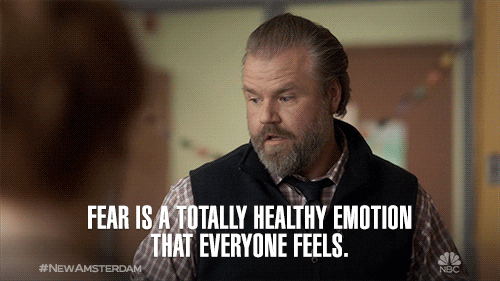
(Source)
Here’s another technique I want you to practice.
Ask yourself, “whose judgment am I afraid of?”
Then, visualize helping that person through sharing your knowledge, expertise or solutions.
You’re moving from “They’re judging me” to “I’m helping them”.
7. If you’re stuck thinking you’re saying something for posterity
People believed the earth to be flat for a long time. And now we all believe it to be spheroid.
There are so many things we believe to be true right now. But we may change our opinions about them 6 months later as we learn more about them.
Therefore, none of what we say will be true forever. Keeping this mind, and knowing that you are only sharing things that you genuinely believe to be true currently, let go of the need to say something for posterity.
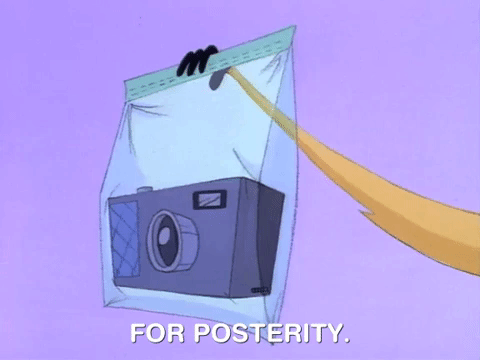
(Source)
I hope you found strategies for dealing with your mind going blank when you’re in the spotlight. If you have a reason that’s different from these, please feel free to reach out to me! I’d love to help you.
Step 3: What to do in the moment when your mind goes blank
Yes, in spite of knowing specific reasons for your mind going blank and being armed with strategies, you may still experience moments of blankness at times.
What would you do to come out of the situation swiftly?
Try this 3-part strategy:
Part 1: Pause

(Source)
Inhale deeply.
Drink some water.
Take a step back.
If you’re feeling bold, you can even share with your audience that you just lost your train of thought.
This simple act can immediately put you in a relaxed state, bringing oxygen to your brain, and reviving your cognitive abilities.
Part 2: Structure your thoughts
…to come up with the next thing to say.
When you go blank in the moment, you are bombarded with a flurry of thoughts. What you need is a way to quickly structure your thoughts and say something that makes sense to your audience.
Here are 3 ways to get you back on track.
The Rule of Three
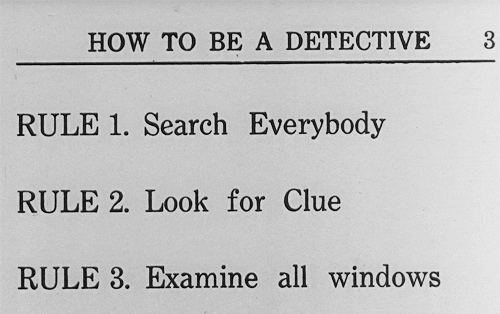
(Source)
The rule of three simply means to organize your thoughts in chunks of three.
It could be 3 benefits of a concept you’re explaining, 3 action steps, or 3 questions you want to ask them. (Did you see what I did there?)
The best part is – when you put this into practice, you only need to think of 2 things, and your mind finds its own way of giving you the third option. Try it!
The Takeaway Sandwich

(Source)
The traditional sandwich technique involves:
- Telling them what you are going to tell them,
- Telling them, and
- Telling them what you told them.
I propose a slightly nuanced version.
1. First think of the key takeaway for the audience. Tease the takeaway with a “headline”.
2. Then share the key ideas that lead to the takeaway.
3. End with the takeaway.
What – So-What – What Now
Through this thought structure, you start with what you’ll be sharing – the key message or topic. Then, share what the importance or relevance of the topic is for the audience. Finally, share the call to action that you’d like the audience to take.
Part 3: Use an improvisation technique
You can also use improvisation to kickstart your brain.
Use word-thought association: think of what you just said (or remember), then associate the next thought with it.
Bonus – how do you answer tricky questions?

(Source)
When someone asks you a tricky question, there are three possibilities:
- There’s the question that’s asked.
- There’s the question that you heard.
- And there’s the question that you’ll answer.
After you’re asking a question, take a 2 second pause and ask yourself if you understood the question correctly. If not, ask the audience member to rephrase or clarify it.
Ask yourself if you know how to answer. If not, don’t be afraid of telling them that you don’t know the answer (yet), and that you’ll get back to them (and actually do).
However, if you know the answer but it may not reflect well on you, your work or your team, you have the option of responding to another question. Here’s an example:
Kathy, a veteran of the fashion industry, is delivering a presentation on sustainable fashion.
One of the audience members asks, “Isn’t promoting sustainable fashion just a way for companies to greenwash their image and continue exploiting workers and the environment?”
Here’s how Kathy might flip the question:
“Let’s reframe the question to focus on ensuring that sustainable fashion practices are truly beneficial for both workers and the environment.”
Conclusion
In this article I’ve shared some of the insights that only my coaching clients knew so far. I hope you’ve enjoyed it and found a few strategies to counter your mind going blank.
I’m excited for you to implement these while practicing your next talk, presentation, or pitch. Want to learn how to make sure your mind never goes blank when you speak in public? Let’s talk.


